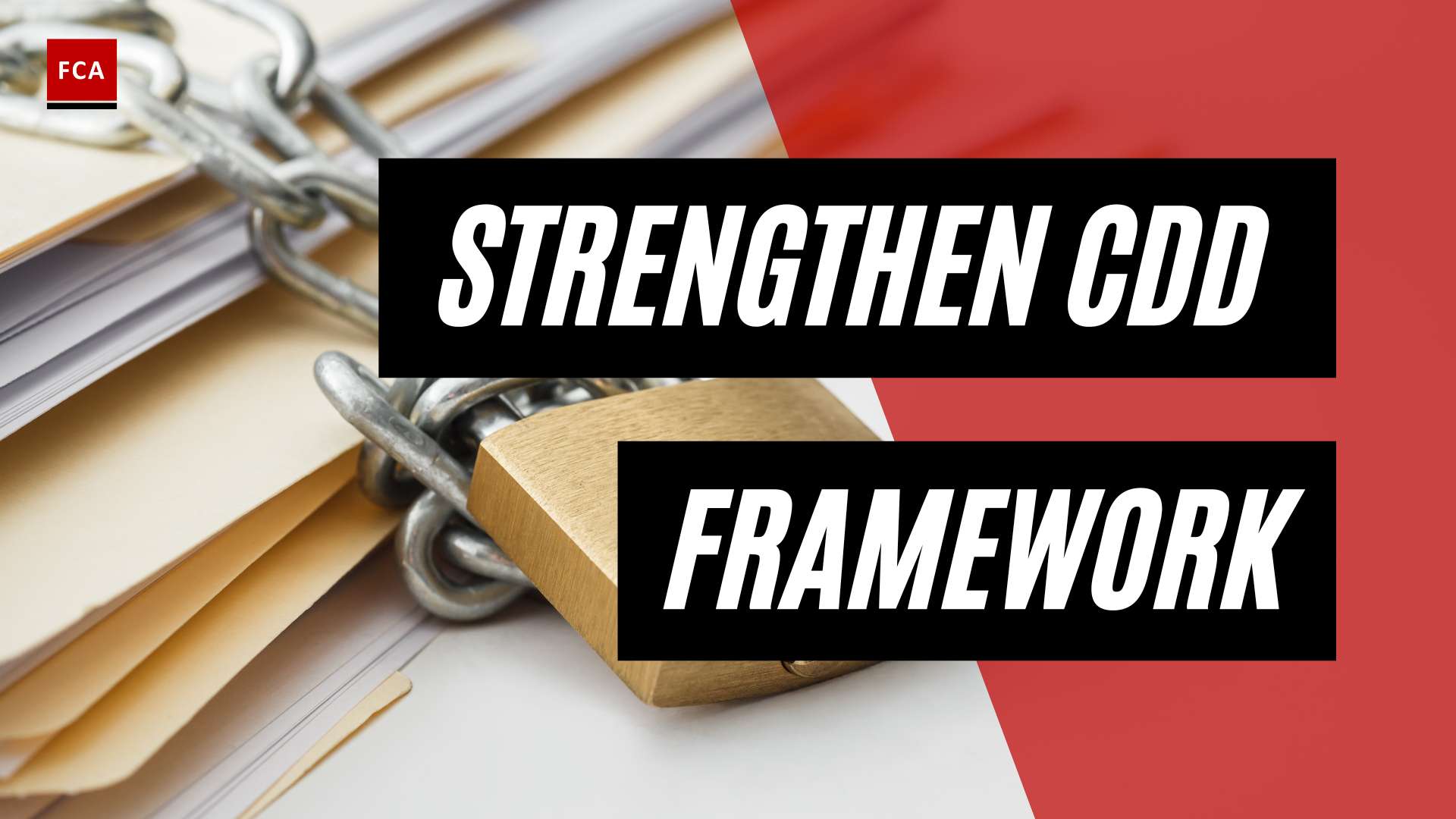AML Screening Software: Enhancing AML Compliance
In the world of anti-money laundering (AML) compliance, the use of AML screening software has become paramount. This software plays a crucial role in identifying and mitigating the risks associated with money laundering and other financial crimes. In this section, we will explore the introduction, benefits, challenges, integration, advanced technologies, and considerations associated with AML screening software.
Introduction to AML Screening Software
AML screening software automates the process of checking customer data against various watchlists, such as politically exposed persons (PEPs) and other high-risk individuals, to identify potential money laundering activities. By leveraging advanced algorithms and data analysis techniques, this software helps financial institutions and businesses in various sectors to detect and prevent illicit financial transactions. The automation provided by AML screening software reduces manual errors and increases the efficiency and accuracy of AML compliance efforts.
Benefits of AML Screening Software
The utilization of AML screening software brings numerous benefits to organizations striving to maintain compliance and combat money laundering. Some key benefits include:
-
Efficient and timely detection of suspicious activities: AML screening software enables the real-time monitoring of customer transactions, allowing financial institutions to quickly identify and investigate potentially suspicious activities. Real-time monitoring is crucial for preventing money laundering and maintaining compliance with regulations.
-
Enhanced accuracy and reduced manual errors: By automating the screening process, AML screening software significantly reduces the risk of manual errors that can occur during manual checks. This automation ensures consistent and accurate identification of high-risk individuals and entities.
-
Streamlined compliance efforts: AML screening software facilitates the systematic screening of customer data, ensuring compliance with regulatory requirements. It also helps organizations in generating reports and maintaining audit trails, which are essential for regulatory compliance.
Challenges in Implementing AML Screening Software
While AML screening software offers significant advantages, there are challenges associated with its implementation. Some common challenges include:
-
Keeping up with evolving threats: Money laundering schemes are constantly evolving, requiring AML screening software to stay up-to-date to effectively identify new threats and risks. Regular updates and maintenance of the software are crucial to address the ever-changing nature of money laundering activities and comply with regulatory requirements.
-
Integration with existing systems: Effective integration of AML screening software with existing systems and databases within financial institutions is crucial for seamless operations and comprehensive monitoring of customer activities. Integration ensures that relevant data is consistently analyzed and compliance efforts are streamlined.
Advanced Technologies in AML Screening Software
To enhance its capabilities, AML screening software incorporates advanced technologies such as machine learning algorithms and artificial intelligence. These technologies enable the software to adapt to changing trends, detect anomalies, and improve its effectiveness over time. By leveraging machine learning and AI, the software can detect patterns indicative of money laundering activities and identify previously unknown risks.
Considerations for Selecting AML Screening Software
When selecting AML screening software, organizations should consider various factors to ensure they choose the most suitable solution for their needs. Key considerations include:
-
Accuracy and effectiveness: The software should have a track record of accurately identifying and flagging potential money laundering activities. It should provide comprehensive coverage by screening against various watchlists and databases.
-
Scalability and flexibility: The software should be scalable to accommodate the growing needs of the organization. It should also be flexible enough to adapt to regulatory changes and evolving business requirements.
-
User-friendly interface: AML screening software should have an intuitive user interface that allows compliance professionals to easily navigate and utilize its features. Clear and concise reporting capabilities are also essential for efficient compliance management.
By leveraging the capabilities of AML screening software, organizations can enhance their AML compliance efforts and effectively combat money laundering activities. However, it is crucial to carefully consider the specific requirements of the organization when selecting a suitable AML screening software solution.
AML Screening Software in Real Estate
In the real estate industry, the use of AML screening software has become increasingly crucial in preventing money laundering activities and ensuring compliance with anti-money laundering regulations. This section explores the benefits and best practices of utilizing AML screening software in the real estate sector.
Preventing Money Laundering in Real Estate Transactions
AML screening software plays a vital role in preventing money laundering activities in real estate transactions. By checking customer and transaction data against a list of known or suspected money launderers, the software can help identify potential risks and flag suspicious activities. This helps real estate businesses mitigate the risk of unwittingly facilitating money laundering activities and maintain compliance with AML regulations (Sanction Scanner).
Efficiency and Cost-effectiveness in Real Estate Business
Implementing AML screening software in the real estate industry offers significant efficiency and cost-saving benefits. The software automates the screening process, making it more efficient and cost-effective compared to manual screening methods. Real estate businesses can save time and money by streamlining their AML compliance processes using automated software solutions (Sanction Scanner).
Integrating AML Screening Software with Real Estate Systems
To fully leverage the benefits of AML screening software, it is essential to integrate the software with existing real estate systems. By combining AML screening data with other data sources, businesses can gain a more comprehensive view of their customers, transactions, and risks. This integration allows for a more informed decision-making process, helping businesses identify potential risks more effectively and take appropriate measures to mitigate them. Integrating AML screening software with real estate systems ensures a seamless flow of information and enhances the overall effectiveness of compliance efforts (Sanction Scanner).
Comprehensive Customer Data Analysis
AML screening software enables real estate businesses to conduct comprehensive customer data analysis. By capturing and analyzing customer information, such as identification documents and transaction history, the software helps businesses identify and verify the identity of individuals involved in real estate transactions. This analysis allows for enhanced due diligence and risk assessment, ensuring that businesses are dealing with legitimate customers and minimizing the risk of money laundering activities.
Sanction Scanner: A Leading AML Screening Software for Real Estate
When it comes to AML screening software for the real estate industry, Sanction Scanner offers an innovative solution designed to protect real estate enterprises. Sanction Scanner’s AML screening tool provides accurate identity verification, ongoing monitoring, and compliance reporting features. With advanced technology and robust databases, Sanction Scanner helps real estate businesses stay ahead of emerging AML risks and regulatory requirements.
In summary, AML screening software is invaluable in the real estate industry to prevent money laundering, enhance efficiency, and ensure compliance with AML regulations. By integrating AML screening software with real estate systems and utilizing comprehensive customer data analysis, businesses can strengthen their AML compliance efforts and protect themselves from potential risks. Sanction Scanner stands out as a leading AML screening software provider, offering cutting-edge solutions tailored to the needs of the real estate sector.
AML Screening Software for Financial Institutions
Financial institutions play a critical role in combating money laundering and ensuring compliance with Anti-Money Laundering (AML) regulations. To effectively fulfill these obligations, financial institutions can leverage AML screening software, which offers a range of features to enhance their compliance programs. Let’s explore the key aspects of AML screening software for financial institutions.
Ensuring Compliance with AML Regulations
Non-compliance with AML regulations can result in substantial fines, penalties, and reputational damage for businesses. AML screening software helps maintain compliance by automating various aspects of compliance programs and minimizing the risk of regulatory violations (Validient). This software enables financial institutions to adhere to regulatory requirements, such as customer due diligence (CDD), know your customer (KYC) processes, and suspicious activity reporting.
Preventing Fraudulent Transactions
AML screening software plays a crucial role in minimizing the likelihood of fraudulent transactions. Leveraging advanced analytics, machine learning, and artificial intelligence, this software detects patterns and behaviors indicative of money laundering. By analyzing vast amounts of data, including customer information, transaction records, and external data sources, the software identifies suspicious activities and alerts compliance teams for further investigation (Validient).
Government Regulatory Bodies and AML Compliance
Governments worldwide have established AML regulatory bodies, such as the Financial Conduct Authority (FCA) in the United Kingdom, Financial Crimes Enforcement Network (FinCEN) in the United States, and the Financial Action Task Force (FATF) at the international level. These regulatory bodies require businesses, including financial institutions, to implement effective AML controls and adhere to strict reporting standards. AML screening software helps financial institutions meet these regulatory expectations and demonstrate compliance during audits or examinations (Validient).
Validient: A Comprehensive AML Software Solution
In the realm of AML screening software, Validient offers a comprehensive solution for financial institutions. Their software utilizes advanced technologies like machine learning, artificial intelligence, and data analytics to automate and streamline the processes involved in detecting, monitoring, and reporting suspicious financial activities. By leveraging these technologies, Validient enables financial institutions to stay compliant with ever-evolving regulations, mitigate risks associated with money laundering, and enhance their overall compliance programs (Validient).
In summary, AML screening software for financial institutions plays a vital role in ensuring compliance with AML regulations, preventing fraudulent transactions, and meeting the expectations set by regulatory bodies. By implementing comprehensive AML software solutions like Validient, financial institutions can enhance their compliance programs, protect their reputation, and focus on driving business growth.
AML Screening Software: Trends and Technologies
As the fight against money laundering intensifies, AML screening software continues to evolve to meet the growing challenges faced by compliance professionals. In this section, we will explore some of the latest trends and technologies shaping the landscape of AML screening software.
Leveraging AI and Machine Learning
AML screening software is increasingly leveraging the power of artificial intelligence (AI) and machine learning to enhance the efficiency and accuracy of screening processes. By analyzing vast amounts of data and patterns, these advanced technologies can identify potential risks and suspicious activities, reducing false positives and improving the overall effectiveness of AML compliance programs (KYC Hub). In fact, 80% of vendors have incorporated AI and machine learning capabilities into their AML screening software solutions, signifying the industry’s move towards more sophisticated and efficient AML detection methods (Verafin).
Integration of Natural Language Processing (NLP)
Natural Language Processing (NLP) technology is being integrated into AML screening software to enable enhanced analysis of unstructured data sources, such as news articles and social media. This integration enables a more comprehensive assessment of potential risks and suspicious activities, allowing compliance professionals to stay ahead of emerging trends and patterns (Verafin). By analyzing textual data and extracting relevant information, NLP technology adds another layer of intelligence to AML screening processes, further strengthening the ability to detect and prevent financial crimes.
Mobile Device Screening Capabilities
With the increasing use of mobile devices for financial transactions, AML screening software is incorporating mobile device screening capabilities. This functionality allows financial institutions to monitor and analyze transactions conducted through mobile channels, ensuring that potential money laundering activities are detected and flagged. Approximately 60% of AML software vendors now offer solutions that include mobile device screening capabilities, reflecting the industry’s recognition of the importance of monitoring mobile transactions in the fight against financial crimes (Verafin).
Cloud-based AML Screening Software
Another notable trend in the AML screening software landscape is the emergence of cloud-based solutions. Approximately 25% of AML software vendors now offer cloud deployment options to their customers. Cloud-based AML screening software provides financial institutions with greater flexibility, scalability, and cost-effectiveness in managing their AML compliance efforts. It allows for easier access to real-time data, seamless updates, and the ability to scale resources based on demand. Cloud-based solutions also simplify collaboration and streamline integration with existing systems, making them an attractive choice for financial institutions looking to enhance their AML compliance capabilities (Verafin).
By embracing these trends and technologies, AML screening software continues to evolve, providing more robust and efficient tools for detecting and preventing money laundering and other financial crimes. As the landscape of regulatory compliance continues to change, staying up-to-date with the latest advancements in AML screening software is crucial for organizations aiming to maintain effective AML compliance programs.
Evaluating AML Screening Software
When evaluating AML screening software, it is important to consider various factors that contribute to its effectiveness and compliance with Anti-Money Laundering (AML) regulations. One aspect to assess is the role of cookies in AML software, as they play a significant role in its functionality. Understanding the types of cookies used and the associated cookie policies is essential for maintaining AML compliance.
The Role of Cookies in AML Software
AML software utilizes various types of cookies on websites to enhance user experience and ensure the smooth functioning of the software. Cookies are small text files that are stored on a user’s device when they visit a website. They serve multiple purposes, including page navigation, remembering user preferences, and providing access to secure areas of the site.
Types of Cookies Used in AML Software
AML software relies on different types of cookies to fulfill specific functionalities. These include:
-
Necessary Cookies: Necessary cookies are essential for the proper functioning of the AML software. They enable basic functions such as page navigation, access to secure areas, and ensuring compliance with AML regulations.
-
Statistic Cookies: Statistic cookies help analyze how visitors interact with websites that utilize AML software. These cookies collect and report information anonymously, providing valuable insights into user behavior and interaction patterns. The data obtained from statistic cookies assists in compliance reporting and improving the effectiveness of AML measures.
-
Marketing Cookies: Marketing cookies are used to track visitors across websites. They enable the display of targeted and engaging advertisements based on individual user preferences and behavior. In the financial sector, these cookies enhance the value of publishers and advertisers by delivering relevant ads to specific users, thereby supporting marketing efforts while adhering to AML guidelines.
-
Unclassified Cookies: Some cookies used in AML software may fall into the unclassified category. These cookies are being categorized and may not have a defined purpose yet. Evaluating and understanding their usage is important to ensure compliance with AML regulations.
Understanding Cookie Policies for AML Compliance
To maintain AML compliance, it is crucial to evaluate AML screening software provided by websites that use cookies. Users should review the cookie policies, including the cookie policy of third-party sites, before utilizing AML software. This helps ensure transparency and provides an understanding of how cookies are used to enhance AML compliance efforts.
By assessing the role of cookies and the associated cookie policies, organizations can effectively evaluate AML screening software to meet their compliance needs. It is important to choose software providers who prioritize data protection, transparency, and adherence to AML regulations. Implementing robust AML software with clear cookie policies contributes to the overall effectiveness of AML compliance efforts.
Staying Ahead of AML Regulations
To effectively navigate the ever-developing landscape of Anti-Money Laundering (AML) regulations, businesses must stay updated and proactive in their approach to compliance. This section explores the importance of AML consultants and advisors, implementing proactive strategies, and establishing robust AML policies and procedures.
Importance of AML Consultants and Advisors
Staying ahead of AML regulations requires a deep understanding of the evolving compliance landscape. Professional AML consultants and advisors play a vital role in assisting businesses in achieving and maintaining compliance. They possess extensive knowledge of AML regulations, industry best practices, and emerging trends. AML consultants provide guidance on implementing effective compliance programs, conducting risk assessments, and ensuring adherence to regulatory requirements. By leveraging their expertise, businesses can navigate the complex AML landscape with confidence and minimize the risk of non-compliance.
Implementing Proactive Strategies for AML Compliance
In today’s dynamic regulatory environment, reactive approaches to AML compliance are no longer sufficient. Designated business owners must adopt proactive strategies based on emerging AML trends to effectively mitigate risks and safeguard financial institutions against financial crimes. Staying updated on regulatory developments, industry insights, and emerging technologies is crucial. By anticipating regulatory changes and investing in advanced AML software solutions, businesses can stay ahead of potential risks, identify suspicious activities, and prevent money laundering. Proactive strategies also involve continuous employee training and awareness programs to foster a culture of compliance throughout the organization.
Robust AML Policies and Procedures
Having robust AML policies and procedures is essential for preventing financial crimes and ensuring compliance. These policies and procedures outline the framework for identifying, monitoring, and reporting suspicious activities. They establish guidelines for customer due diligence, risk assessment, transaction monitoring, and record-keeping. Robust AML policies and procedures should align with regulatory requirements and industry best practices. Regular reviews and updates are necessary to incorporate changes in regulations and address emerging risks. By implementing comprehensive and well-documented policies and procedures, businesses can demonstrate their commitment to AML compliance and mitigate the risk of non-compliance.
Staying ahead of AML regulations requires a proactive and comprehensive approach. By engaging AML consultants and advisors, implementing proactive strategies, and establishing robust policies and procedures, businesses can effectively navigate the evolving AML landscape, ensuring compliance and safeguarding against financial crimes. It is crucial for designated business owners and AML officers to stay updated on regulations, industry best practices, and emerging trends to maintain a culture of compliance within their organizations. Failure to comply with AML regulations can result in significant penalties, reputational damage, and legal consequences. Therefore, staying ahead of AML regulations is not only a regulatory requirement but also a strategic imperative for the success and profitability of businesses.
Evaluating AML Screening Software
As the fight against money laundering and financial crimes intensifies, the importance of robust AML (Anti-Money Laundering) compliance measures cannot be overstated. A key component of an effective AML program is the use of AML screening software to identify and mitigate potential risks. Evaluating and selecting the right AML screening software is crucial for financial institutions and businesses to ensure compliance and protect their reputation.
The Role of Cookies in AML Software
AML screening software utilizes various technologies to analyze customer data and transactions. One of the technologies commonly employed is cookies, which are small text files stored on a user’s device. Cookies play a vital role in enhancing the functionality and effectiveness of AML software.
Types of Cookies Used in AML Software
There are different types of cookies used in AML screening software to enhance user experience and enable efficient data processing. Below are some common types of cookies utilized:
| Cookie Type | Description |
|---|---|
| Session Cookies | These cookies are essential for the operation of the software. They enable user authentication and maintain session information, allowing users to navigate through the software smoothly. |
| Analytical Cookies | Analytical cookies gather statistical information about how users interact with the software. They help software providers understand user behavior, identify areas for improvement, and enhance the overall user experience. |
| Functional Cookies | Functional cookies enhance the functionality of the software by remembering user preferences and settings. They enable features such as language selection, personalized content, and saved search criteria. |
| Third-Party Cookies | Third-party cookies are set by external websites or service providers integrated with the AML screening software. These cookies may be used for purposes such as targeted advertising, social media integration, or analytics. It’s important to review and understand the privacy policies and practices of third-party providers when utilizing their services. |
Understanding the different types of cookies used in AML screening software allows businesses to ensure compliance with privacy regulations, such as the General Data Protection Regulation (GDPR). It is essential to provide clear and transparent information to users about the use of cookies, obtain their consent where required, and implement appropriate data protection measures.
To further understand AML screening software and its application, it is essential to explore additional topics such as AML compliance software, AML software for banks, AML KYC software, AML transaction monitoring software, AML monitoring software, AML software solutions, AML case management software, and AML reporting software. These topics provide a comprehensive overview of the technologies, practices, and tools available to combat money laundering and financial crimes.
By evaluating and implementing AML screening software that aligns with regulatory requirements and industry best practices, businesses can enhance their AML compliance efforts, reduce the risk of financial crimes, and safeguard their reputation in an increasingly complex and regulated landscape.








